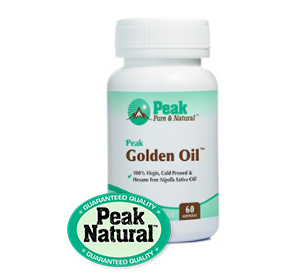Get Easy Health Digest™ in your inbox and don’t miss a thing when you subscribe today. Plus, get the free bonus report, Mother Nature’s Tips, Tricks and Remedies for Cholesterol, Blood Pressure & Blood Sugar as my way of saying welcome to the community!
Why the connection between asthma and osteoporosis?

I vividly remember my sister having frequent asthma attacks as a child and watching her gasp for air while reaching for her inhaler. Watching this occurring on the sidelines was frightening.
But little did I know my sister would also suffer a seemingly unrelated health condition years later, a result of the hidden side effects of using corticosteroid inhalers: a vulnerability for early osteoporosis.
Asthma can be deadly. The symptoms include coughing, tightness in the chest and wheezing. Because there currently is no cure for asthma, management of the condition is the best our health care providers can offer.
However, recent research is proving those treatments, including inhaled and oral corticosteroid medications, can come at a cost…
Clinical studies
Asthma is a chronic inflammatory disease that causes swelling of the airways in the lungs making it difficult to breathe including the production of thick mucus. It can be minor or interfere with daily activities.
According to the Centers for Disease Control and Prevention (CDC), 1 in 13 people has asthma resulting in nearly 1.6 million emergency room visits annually. Asthma is the leading chronic disease in children, like my now-grown sister.
Since the 1950s, the use of oral corticosteroids, widely prescribed for asthma and many other conditions, has been linked with a significant increase in the risk of osteoporosis. But newer evidence continues to pile up, linking the use of inhaled corticosteroid to bone loss as well.
These drugs have horrendous side effects which include accelerated bone loss by preventing calcium absorption in the gut and increasing the loss of calcium through urine. If that were not bad enough the drugs also damage the cells that help build bone.
In the UK, using health records entered into the nationally-representative Clinical Practice Research Datalink (CPRD) GOLD database, patients records of 3,700 older asthma patients were matched with at least 4 patients of the same gender and age who did not have osteoporosis or fragility fractures and other factors likely to affect bone density.
The results revealed a clear positive association between the number of inhaled or oral steroid tablets and the cumulated dose and the risk of osteoporosis…
- Those with four or more prescriptions of oral corticosteroids were roughly four times more likely to have osteoporosis.
- Patients given 11 or more prescriptions for inhaled steroids were 60 percent more likely to have osteoporosis and 31 percent more likely to have fragility fractures than those not prescribed the drugs.
The higher the cumulated dose, and the longer the period of treatment, the greater these risks seem to be indicated in the findings.
What did the researchers recommend? They suggest doctors step down treatment in patients where their asthma seems well-managed and consider additional treatment with bisphosphonates, a class of drugs that prevent the loss of bone density. However long-term use of the bisphosphonates has been found to lead to bone fractures as well.
«SPONSORED»
Lifestyle and home remedies
As you probably know, steroids are a quick way to bring inflammation down. In an emergency situation, an asthma inhaler is necessary to open up air passageways and reduce inflammation.
But it’s possible to work daily to reduce inflammation in general. An anti-inflammatory diet is one way.
Certain vitamins and supplements can lower the inflammatory response as well, including fish oil, vitamin C, vitamin D, and one you may not be as familiar with, Nigella sativa — also known as black seed oil or golden oil.
My colleague Virginia Tims-Lawson shared a study that indicated N. sativa was an effective anti-inflammatory that inhibited histamine release. The study authors felt it had potential for asthma therapy and prevention, especially where allergy is a trigger.
A trigger is different for everyone, but is something you are sensitive to that causes a reaction in your airways and, likely, inflammation. In addition to allergies, common asthma triggers include:
- Weather changes
- Upper respiratory infections
- Pollen and pets
- Mold and dust mites
- Stress/Exercise
- Chemicals, like those found in cleaning products
- Tobacco smoke
- Gastroesophageal reflux disease (GERD)
Lifestyle factors to cut down on asthma attacks:
- Prevention and long-term control are the keys to keeping asthma attacks at a minimum.
- Develop an action plan with your doctor to keep symptoms under control. Also, talk to him about protecting your bone health.
- If the asthma attacks are set off by outside triggers talk with your doctor on how to minimize your exposure to them. For example, your doctor may help identify allergic triggers with allergy testing.
- Always practice frequent hand washing to help reduce your risk of catching colds.
- If you live in a colder climate and enjoy exercising in the cold it may be helpful to cover your face with a mask or scarf if your asthma flares up.
- Explore local clinic studies testing new treatments and interventions with your doctor to help manage this disease
Sources:
Asthma Attack — Mayo Clinic
Asthma – Centers for Disease Control — (CDC)
Vital Signs: Asthma in Children – United States, 2001-2006 — CDC
The risk of osteoporosis in patients with asthma — European Clinical Respiratory Journal
Asthma drugs boost hip fracture risk — WebMD
Steroid inhalers/pills for asthma linked to heightened risk of brittle bones and fractures — ScienceDaily
Could Common Asthma Meds Weaken Bones? — US News













